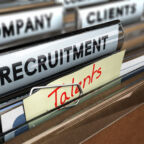Our experienced employment lawyers filed a collective and class action lawsuit in Ohio against CCH Healthcare for its failure to properly compensate hourly, non-exempt direct care employees for all overtime that they earned.
On April 29, 2022, Coffman Legal, LLC filed a Collective and Class Action Complaint against Defendant CCH Healthcare Ohio, LLC (“CCH”) on behalf of CCH employees for the alleged failure of CCH to compensate its employees for all overtime wages earned for in violation of the federal Fair Labor Standard Act (“FLSA”) and Ohio law. This lawsuit is titled Rick Frederick v. CCH Healthcare OH, LLC, Case No. 3:22-cv-699, and is located in the federal district court for the Northern District of Ohio.
The lawsuit alleges that CCH required a daily 30-minute meal break deduction from its employees’ compensable hours worked. However, this period of 30 minutes was alleged to be off-the-clock and/or deducted from healthcare employees’ daily hours regardless of whether or not they actually received an uninterrupted (free of any work) 30-minute meal break. Although employers are permitted by the law to make these deductions, they can only do so if their employees are receiving “bona fide meal breaks.” The law provides the following for bona fide meal breaks:
- Bona fide meal periods are not worktime. Bona fide meal periods do not include coffee breaks or time for snacks. These are rest periods. The employee must be completely relieved from duty for the purposes of eating regular meals. Ordinarily 30 minutes or more is long enough for a bona fide meal period. A shorter period may be long enough under special conditions. The employee is not relieved if he is required to perform any duties, whether active or inactive, while eating.
If employees’ meal breaks are missed, shortened, or otherwise interrupted by job duties, then employers must pay employees for their meal breaks. Similarly, employers cannot deduct a full meal break from employees’ hours worked if such break is essentially “split up” into multiple smaller breaks throughout the workday. Because CCH unlawfully took these meal break deductions for non-bona-fide meal breaks, its hourly direct care employees have accrued unpaid overtime.
The lawsuit also alleges that direct care employees received bonuses such as shift differentials, pickup-shift bonuses, safety bonuses, and/or bonuses related to COVID-19. Together, these “bonuses” should have been included in the calculation of employees’ regular rates of pay for purposes of computing each employee’s overtime rate, but the lawsuit alleges that they were not. An example of the failure to pay overtime at the correct rate of pay is as follows: Employee A is paid $10 per hour and works 50 hours in a workweek. During that same workweek, Employee A earns a $100 bonus. An employer that does not properly include the bonus in the calculation of employees’ overtime rates might otherwise pay the employee overtime at $15 per hour ($10 base hour rate multiplied by 1.5), but overtime should actually be paid at $18 per hour because the $100 bonus increases the employees’ regular rate of pay to $12. The FLSA and Ohio law require overtime to be paid at 1.5 times an employee’s regular rate of pay which is not always the same amount as an employee’s base hourly rate of pay.
On September 27, 2022, the Court granted conditional certification of the collective, and notice of the lawsuit began being sent out by mail and text message the week of November 1. If you received a letter or a text informing you of your right to join this lawsuit, you may do so by following the instructions in the letter/text on how to return the consent form. Please reference the notice for the deadline to join.
If you are a former or current CCH employee, you may have also received a letter from CCH informing you of “payroll calculation errors” and promising to issue you a “live check” to correct these errors. If you received one of these letters and/or received a check from CCH, you are still eligible to join this lawsuit. Any payments made by CCH will not include all possible unpaid overtime available to you through this lawsuit.
This lawsuit provides an example of the various ways in which employers like CCH may underpay their employees in violation of the FLSA. This unpaid overtime adds up over the course of weeks and years. Non-exempt hourly employees are entitled to receive their full and proper compensation under the FLSA and Ohio law.
The lawsuit seeks unpaid overtime wages since April 29, 2019, liquidated damages in an amount equal to the unpaid overtime (200% of the unpaid overtime), attorneys’ fees, and costs, among other things.
Additional information about the collective and class action against CCH may be found by contacting our office by calling 614-949-1181 or emailing mcoffman@mcoffmanlegal.com. If you have any questions about whether you are being properly paid all overtime wages earned for all of the compensable hours you work (including overtime), then contact our office today to speak with our Overtime Lawyers regarding any wage and hour issues. In addition, if you have any questions about any letters or payments you have received from CCH, please call our office to speak with one of our experienced employment attorneys.





